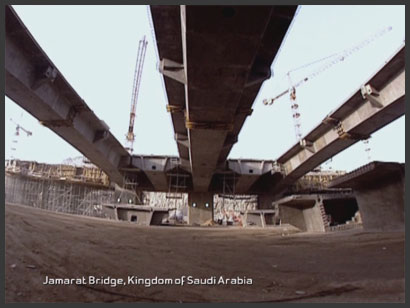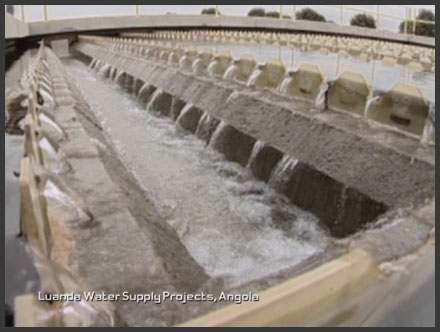Leading Real Estate and Construction Consultant in the Middle East
Sustainability today is a reality, not a luxury and you have to look at the environment seriously in design and construction. We are fully committed to to the concept of sustainability and we’re doing what is humanly possible to move in that direction. Sustainable solutions start at the master planning stage.
I think anyone who can predict what will happen is a false prophet, but it seems to me that property and land prices in Lebanon are stable. I don’t see a major short-term movement in the real estate market, up or down. I feel that high end properties have reached their plateau for the moment. Don’t forget that while the rest of the world was witnessing a construction boom, and exuberance and optimism in real estate markets, Lebanon endured the assassination of the late prime minister and other political tensions. The country was frozen for quite a while until the Doha Accords of 2008 and the new government was formed. There was a lot of catch up to do as demand recovered after the situation in the country stabilized. The catch up forced real estate prices up quite significantly.
As for the property market in the region, Dubai experienced a property surge buoyed by speculation and property flipping. Now they’re going through correction. Other Gulf countries have felt the chill wind of the recession. But as long as oil prices remain over $80 pb the fundamentals look positive. In some places, Saudi Arabia especially, there is constant demand for property.
Is it true that there’s speculative investment being poured into the Lebanese market ?
It is hard to tell. Any speculative bubbles are very dangerous. But what I’ve seen is that most of the acquisitions of properties in this country have been for individuals.
“I personally have not seen, in Beirut at least,
speculation of the dangerous type that
we have seen in other places.”
How would you chart the growth of your company and what is your business model ? What is your specialty ?
 We value delivery and quality. We have been very much a part of the development of the Middle East and Africa so we have seen how it has been transformed over the years. In the process we have gained experience in tackling large scale projects. At the same time we’re also focused on individual projects, such as infrastructure facilities, hospitals, hotels, housing, etc. We are able to engage initially in the development of the master plan, then look at the infrastructure needs for that master plan, then design and oversee the construction of the project, finally handing it over to the client.
We value delivery and quality. We have been very much a part of the development of the Middle East and Africa so we have seen how it has been transformed over the years. In the process we have gained experience in tackling large scale projects. At the same time we’re also focused on individual projects, such as infrastructure facilities, hospitals, hotels, housing, etc. We are able to engage initially in the development of the master plan, then look at the infrastructure needs for that master plan, then design and oversee the construction of the project, finally handing it over to the client.
I say with a lot of pride that we have been successful. In terms of our business model we are a partnership. Half of the partnership is devoted to quality of design. The other half of our cadre of directors is focused on marketing. These directors reside in and become a part of the area and society each takes responsibility for. This intimacy with each market and its clients has been a significant component of our success.
Can you mention some flagship projects that you have been working on that are the fingerprints of your development?
I’ll start with Solidaire, which is our pride and joy. It was the first and main real estate development project in the Arab world. Our involvement in Dubai International airport’s new terminal and the new concourse has been both highly successful and satisfying. Right now in Saudi Arabia we take great pride in the fact that we planned and executed the Princess Nora University at KSU. Now we have finally concluded a contract for the expansion of the Haram in Makkah. This is a very important project and it is a real privilege to be there.
What kind of added value are you able to provide to the customers ; how do you differentiate yourselves?
First, by our corporate experience and expertise built up through our long record of engagement in the development of the Region. Second by the people we have, their professional quality, and the deep reservoir of experience they provide to serve our clients. Third, our record and reputation for timely delivery to our clients and their communities. Since inception we have been concerned to enhance and maintain the quality of our work and our delivery.
How would you comment on your biggest challenge, how do you structure your strategies given the global economic downturn ?
All businesses are going through a difficult time, first with the credit crunch and then with what happened with the banking system . We are fortunate that many of our clients are solid and are in the private sector, and that governments honor their commitments with us and their contracts. We are very fortunate because we have been choosing our clients and business partners carefully so as to manage risks.
How would you comment on your international strategy ? What kinds of markets do you wish to develop in the future?
I think we have to look eastward.
But first we want to maintain our strong presence in the Middle East. We must strengthen and expand our presence in Africa, because we do see opportunity there. And eastwards we are looking towards India. I believe India is a rising giant, and also China.
When you enter new markets how do you establish yourselves and your brand?
You have to become part of the fabric of society. You can’t just focus on one project and when it’s over you’re gone. You have to establish a presence in the country by partnering in that country or through acquisitions there. You have to use a longer view, so that your potential clients know you are there and that you are committed. Clients nowadays want a more personal approach and want you to be near them.
How do you see the long-term vision for your company ?
You want to be practical and prudent. Everyone has a strategic plan but you also have to look at things on a day to day basis. As for the longer-term, we have to maintain quality of our design, a commitment to delivery, to always being on the cutting edge of technology. These are the challenges for us as we move into the future. Our commitment to sustainability is also important.
“Sustainability today is a reality, not a luxury.
It is necessary to look at the environment seriously
during the processes of design and construction.”

What would be your final message to our audience about Lebanon ?
Lebanon has a lot of young people who are innovative, have upward mobility and who are connected with one another and their peers in the rest of the world.
This will be the real challenge for firms like ours whose business is developing the infrastructure and built environment in which the young will mature and take our society and its communities forward. To look at what these young citizens’ aspirations are, at how we can cater to them and make life more liveable for them as they mature and grow. I hope our governments and political leaders work very hard to maintain stability here. I think that we will see sustainable progress and better times ahead.